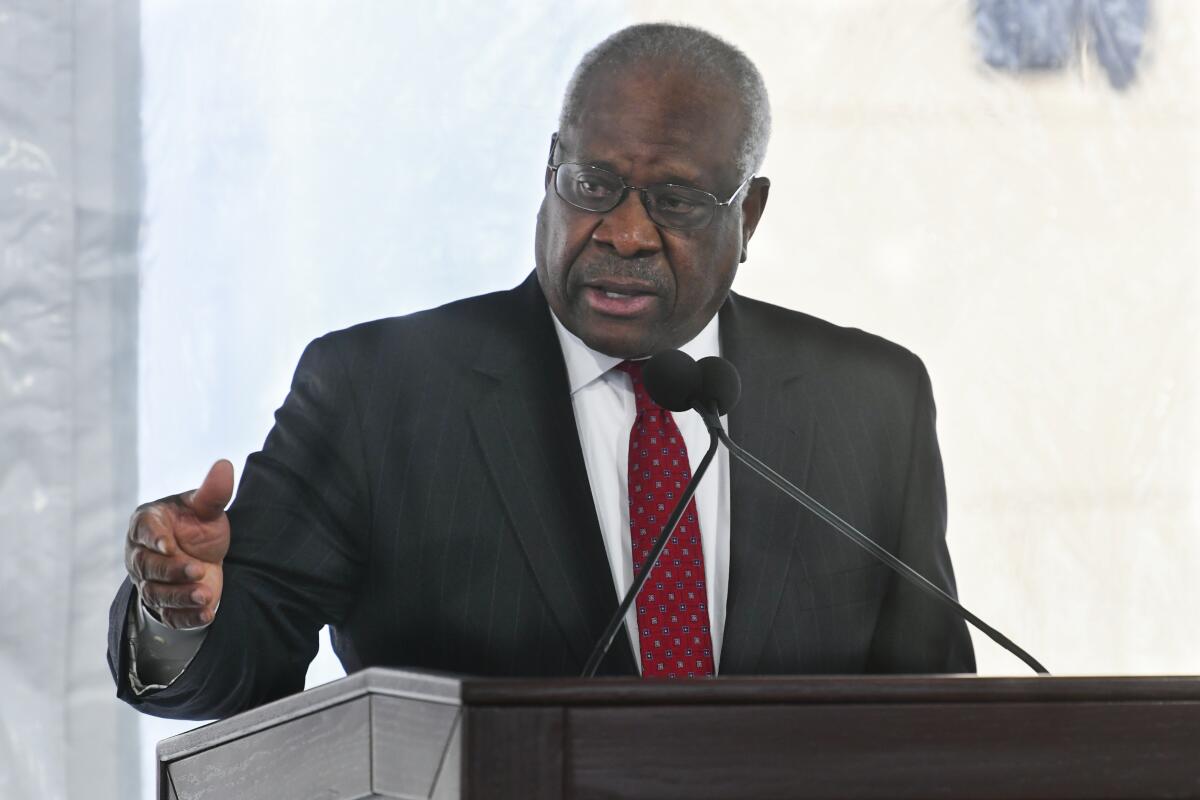Supreme Court may shield Koch-backed nonprofit from disclosing its donors to California

- Share via
WASHINGTON — The Supreme Court in 1958 shielded the NAACP from being forced to disclose its membership list to Alabama state authorities, ruling the Constitution protects privacy of civil rights advocates and the “freedom of association, particularly when a group espouses dissident beliefs.”
On Monday, the high court appeared ready to apply that landmark precedent to shield a libertarian group sponsored by the Koch family and a conservative religious group based in Chicago, both of which object to disclosing their major donors to the California attorney general.
The IRS requires tax-exempt organizations to report information on their major donors. And since at least 2014, the California attorney general has required groups that raise funds in the state to file a confidential copy of that report. The donor names are not made public, but state lawyers say they are useful if they need to investigate possible frauds involving charities.
But for seven years, groups including the Americans for Prosperity Foundation and the Thomas More Society have been fighting in court, arguing this required disclosure of donors violates the U.S. Constitution and puts the conservative groups at risk for harassment from left-leaning rivals.
“In our divisive times ... there is such a proclivity to vilify perceived enemies,” Derek Shaffer, attorney for Americans for Prosperity Foundation, told the court.
Justices Samuel A. Alito Jr. and Clarence Thomas did not need to be convinced.
During Monday’s argument, Thomas asked several times about “loose accusations” against organizations that “might be accused of being white supremacists or racist or homophobic,” suggesting their members and donors needed protection because they had “become quite controversial.”
Alito pressed the point later. “Do you doubt that donors to organizations that take unpopular positions on hot-button issues have reason to fear reprisals if those donations are made public? Do you think that’s a legitimate fear in our current atmosphere?” he asked. “Or do you think it’s paranoid?”
Acting U.S. Solicitor Gen. Elizabeth Prelagar, joining the case on the side of California, acknowledged that such a disclosure “can produce a chilling effect in individual cases” but stressed that it has not been a problem “across the board with respect to the average person donating to the average charitable organization.”
She and California Deputy Sol. Gen. Aimee A. Feinberg urged the court to uphold the California rule as constitutional, but perhaps require that some groups have the ability to object or be exempted from it.
Justice Elena Kagan pointed out that most people are proud of donating to charities, and many charities gladly publicize their major donors.
A decision in Americans for Prosperity vs. Bonta is due by late June.
More to Read
Get the L.A. Times Politics newsletter
Deeply reported insights into legislation, politics and policy from Sacramento, Washington and beyond. In your inbox twice per week.
You may occasionally receive promotional content from the Los Angeles Times.











